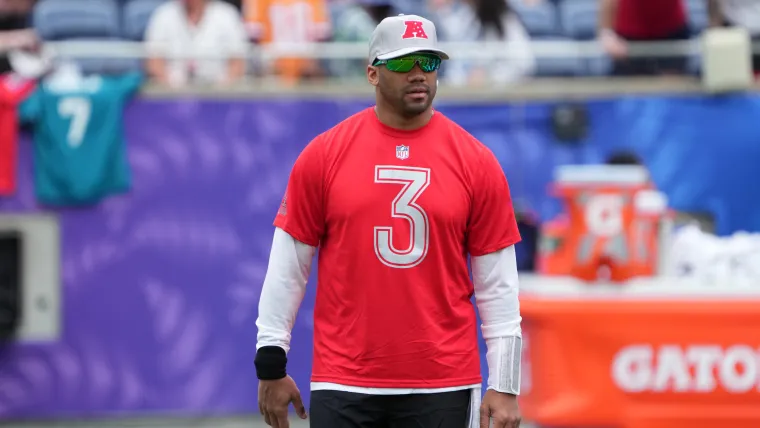The New York Giants will have a new starting quarterback in 2025 after the team parted ways with Daniel Jones in 2024 and signed Russell Wilson this offseason.
If the Giants want to put Wilson is the best position possible to succeed, they’ve got to upgrade the group of pass-catchers. Malik Nabers is a surefire star, but Wan’Dale Robinson and Darius Slayton are only decent depth pieces, and Jaylin Hyatt and Theo Johnson remain unproven.
If the Giants want an upgrade at tight end, they should give the Baltimore Ravens a call for Mark Andrews, who appears to be on the trade block. Pro Football & Sports Network’s Sterling Xie thinks the Giants should trade for Andrews, because New York has “one of the emptiest tight end rooms in the NFL.”
Trade rumors have been swirling around Andrews all offseason long, and Ravens general manager Eric DeCosta was non-committal when asked about the three-time Pro Bowler’s future in Baltimore.
“I never know what’s going to happen,” DeCosta said of a possible Andrews trade, per ESPN’s Jamison Hensley. “And I would never want to say this or that. But I can tell you this: Mark Andrews is a warrior. He’s played his butt off for us.”
A three-time Pro Bowler, Andrews is one of the best pass-catching tight ends in the NFL and would be an instant upgrade for New York’s offense. He can also help mentor Johnson, who was taken in the fourth round of the 2024 NFL draft.
Follow The Sporting News on WhatsApp
Andrews is coming off a down season production-wise with 673 yards, but he also had plenty of competition for targets and still proved to be a dangerous red-zone threat with 11 scores, leading all tight ends.
With Andrews entering the final year of his $56 million contract, he shouldn’t cost a ton in a trade. We could see the Giants acquiring Andrews for a fifth-round pick. At that price — or something close to it — New York should be interested.
As for the Ravens, they already have an in-house replacement in Isaiah Likely, who has the makings of a star at the position. A pre-June 1 trade would save Baltimore $11 million in cap space while incurring a $5.9 million dead cap hit.
Read the full article here

